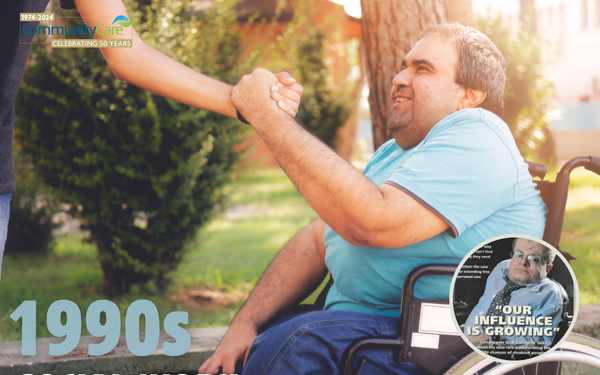News Feeds
Society | The Guardian
- Nebraska top court upholds law combining abortion and gender-affirming care restrictions
Law doesn’t violate amendment to stick to one subject, although abortion and gender healthcare are ‘distinct’
A Nebraska law that combined abortion restrictions with another measure to limit gender-affirming healthcare for minors does not violate a state constitutional amendment requiring bills to stick to a single subject, the state supreme court ruled Friday.
The state’s high court acknowledged in its ruling that abortion and gender-affirming care “are distinct types of medical care”, but the law does not violate Nebraska’s single-subject rule because both abortion and transgender health fall under the subject of medical care.
Continue reading...- School worker jailed for sexually abusing autistic boy aged under 16
Acasia Welburn pleaded guilty to three charges of sexual activity with child by person in a position of trust
A school worker has been jailed for sexually abusing an autistic boy who was under 16 at the time, police said.
Acasia Welburn, now 26, had been working at a school in North Yorkshire in a “trusted care position” when she abused the child.
Continue reading...- Greens expel Surrey members who allegedly backed tactical voting against Jeremy Hunt
‘Draconian’ bannings, including of two local councillors, follow original candidate’s withdrawal at behest of local party
The Green party has been accused of acting in a draconian and authoritarian way after a number of members were expelled for allegedly trying to support tactical voting to defeat Jeremy Hunt at the general election.
At least three members, two of them councillors, have been banned from the party until 2029. One of those expelled said it seemed to go directly against the Green values of internal party democracy and tolerance.
Continue reading...- Millions of UK public sector workers set for above-inflation pay rise
Rachel Reeves is expected to accept pay review body recommendations in move that could cost up to £10bn
Millions of public sector workers are set for an above-inflation pay rise due to be announced by Rachel Reeves next week after more than a decade of austerity.
The chancellor is expected to accept the recommendations of public sector pay bodies for pay increases on Monday – a move economists believe could cost up to £10bn.
Continue reading...- Asphalt burns, delirium, body bags: extreme heat overwhelms ERs across US
More than 120,000 heat-related ER visits were tracked in 2023, as people struggle in record-breaking temperatures
In his 40 years in the emergency room, David Sklar can think of three moments in his career when he was terrified.
“One of them was when the Aids epidemic hit, the second was Covid, and now there’s this,” the Phoenix physician said, referring to his city’s unrelenting heat. Last month was the city’s hottest June on record, with temperatures averaging 97F (36C), and scientists say Phoenix is on track to experience its hottest summer on record this year.
Continue reading...
Community Care
- CQC ‘not fit for purpose’, says Streeting, in wake of damning report
 The Care Quality Commission is “not fit for purpose”, health and social care secretary Wes Streeting has declared, after a damning report found significant failings within the regulator. These were hampering its ability to identify poor performance at the services…
The Care Quality Commission is “not fit for purpose”, health and social care secretary Wes Streeting has declared, after a damning report found significant failings within the regulator. These were hampering its ability to identify poor performance at the services…- Councils offered £15,000 to take in unaccompanied children from Kent
 Councils are being offered £15,000 to take unaccompanied asylum-seeking children from Kent County Council to relieve pressures on the south coast authority. The incentive, introduced by the Conservative government before it left office, is for any authority that takes a…
Councils are being offered £15,000 to take unaccompanied asylum-seeking children from Kent County Council to relieve pressures on the south coast authority. The incentive, introduced by the Conservative government before it left office, is for any authority that takes a…- Social work across the decades: how the disability movement reshaped social care
 by Ray Jones This article on social work in the 1990s is the third in a five-part series by Professor Ray Jones for Community Care’s 50th anniversary. Each part will look back at key events from the previous five decades…
by Ray Jones This article on social work in the 1990s is the third in a five-part series by Professor Ray Jones for Community Care’s 50th anniversary. Each part will look back at key events from the previous five decades…- ‘In memory of Pat, my social work mentor and inspiration’
 For Community Care’s 50th anniversary, our My Brilliant Colleague series invites you to celebrate anyone who has inspired you in your career. Social worker Nicola Silk lost her mentor and friend of 16 years, Pat Curtis, just a couple of…
For Community Care’s 50th anniversary, our My Brilliant Colleague series invites you to celebrate anyone who has inspired you in your career. Social worker Nicola Silk lost her mentor and friend of 16 years, Pat Curtis, just a couple of…- Social work bursary delay risks excluding disadvantaged applicants from courses, academics warn
 A delay in confirming social work bursary arrangements in England for 2024-25 risks preventing disadvantaged applicants from taking up places, academics have warned. The government is yet to confirm bursary allocations for universities this year, with less than two months…
A delay in confirming social work bursary arrangements in England for 2024-25 risks preventing disadvantaged applicants from taking up places, academics have warned. The government is yet to confirm bursary allocations for universities this year, with less than two months…
HuffPost UK - Athena2 - All Entries (Public)
- Thousands Of Women Are Being Failed Every Year Thanks To These Symptoms Being Misdiagnosed
- Did The Tories Really Leave Labour A 'Shocking' Inheritance?
- This Is How The Cost Of School Uniforms Is Impacting Parents
- Tory Leadership Hopeful Is Now Celebrating One Of The Smallest Wins Possible
- I Just Learned Why We Say ‘Under The Weather’ And I Never Would Have Guessed
Blogs
Social Care Network | The Guardian
- 'Don’t expect a survivor to tell you her experience of undergoing FGM'
Specialist social workers explain how they support women and girls affected by the practice
When social worker Sam Khalid [not her real name] first began working with women affected by female genital mutilation (FGM), she found there wasn’t much awareness of the brutal practice in the UK.
She was in her first year at university, in 2011, on a placement with a Women’s Aid team. “The service I was placed in was just starting its FGM unit, and I learned about the practice and met and spoke to many survivors,” she says.
This article was amended on 12 December 2018. An earlier version referenced statistics from a recent Guardian article which was taken down after the Guardian was notified of a fundamental error in the official data on which it was based.
Continue reading...- We want to attract the right people with the right values to social care | Caroline Dinenage
New government recruitment campaign will raise the image and profile of the sector
This year we are celebrating the 70th anniversary of our amazing NHS, but we must not forget that adult social care is also marking 70 years. The National Assistance Act 1948 that created many of the core elements of the modern social care system came into effect on the same day as the NHS act.
In the NHS’s birthday month we have heard many stories of the dedicated nurses, doctors and support staff who have been saving and transforming lives across its seven decades. While these staff are rightly seen as the backbone of the NHS, hardworking care workers, nurses, social workers, managers and occupational therapists are, likewise, the foundation of the adult social care sector – and they have been on the same 70-year journey as colleagues in health. They are two sides of the same coin – inseparable and essential to each other.
Continue reading...- The UK project giving refugees another chance at childhood
Young refugees face unspeakable trauma to get here. But a cross-charity initiative is helping them to rebuild their lives
It is hard to be an adult when you feel like you haven’t had the chance to be a child.
This simple statement has stayed with me over the last 12 months of working with young refugees and asylum seekers. Among them, a 17-year-old boy forced to sleep in a railway station for months; and another who witnessed the killing of his brother and father and escaped from his home country in fear of his life.
Continue reading...- UN: spend an extra £5tn by 2030 to tackle global 'care crisis'
Report highlights risk of rising inequality against women worldwide
The world economy faces a looming “care crisis” risking further division between men and women across the planet, according to a UN report calling for governments and companies worldwide to spend at least an extra $7tn (£5.3tn) on care by 2030.
Making the case for spending on support for children, old people and the neediest in society to double by the end of the next decade, the UN’s International Labour Organisation (ILO) warned demographic changes alone mean the current path for care funding falls far short of requirements.
Continue reading...- Theresa May got it wrong with her cash boost for the NHS. Here's why
Assessing what the health service needs is essential before giving it more money to meet demand
Four key things were missing from Theresa May’s announcement of extra money for the NHS.
There was no admission that there is an NHS crisis that needs tackling. Or that money is needed now for both the the health service and social care. Without this emergency cash injection, there will be insufficient time and resource to make the necessary preparations to avoid a repeat – or indeed worsening – of last year’s winter crisis in the NHS and social care with the trail of waits, delays, suffering and extra deaths that accompanied it.
Continue reading...
- Feed not available.
Opinion | The Guardian
- The Guardian view on Israel and the world: Benjamin Netanyahu’s US trip won’t help| Editorial
The horrors of the war in Gaza, and the Israeli prime minister’s conduct and rhetoric, are spurring shifts in policies overseas
The multiple standing ovations that Benjamin Netanyahu received in Washington this week, on his first trip abroad since the Hamas attack of 7 October, must have rung hollow even to his ears. The problem was not merely the distraction of the US political class by Joe Biden’s abandonment of his re-election bid, and Kamala Harris’s ascension. Almost half of House and Senate Democrats boycotted his address to Congress. Many instead met relatives of hostages, who are furious at Mr Netanyahu for failing to reach a ceasefire agreement. Nancy Pelosi described his speech as by far the worst by any foreign dignitary at the Capitol.
The Israeli prime minister is used to unpopularity: around 70% of Israelis think he has not done enough to win the hostages’ release; a similar number want him to resign. But abroad, he bears much of the responsibility for a decisive shift in attitudes towards his country as well as himself, even in its staunchest ally.
Continue reading...- The Guardian view on Strictly Come Dancing: a serious stumble but hopefully not a fall | Editorial
The duty of care must be taken more seriously as illusion meets the tough reality of the dancefloor
The new political dawn, when the BBC might have hoped for at least a brief period of tranquillity, came to an abrupt end with the double whammy of a scandal on one of its flagship programmes, Strictly Come Dancing, and an annual report which revealed that half a million households had cancelled their licence fee last year. Though there is no direct link between the two the coincidence demonstrates the delicate line the corporation is treading in terms of keeping itself match fit and beyond criticism in an era of proliferating competition and sniping social media.
For the last 20 years, Strictly Come Dancing has been one of the pillars on which the BBC has been able to lean in demonstrating its capacity to entertain multiple generations simultaneously, while reflecting their own diversity back to them as something to be celebrated, with stars excelling regardless of age, physical disability, ethnicity or sexual orientation.
Continue reading...- Was the jailing of Just Stop Oil protesters fair? | Letters
The crackdown on the right to protest in recent years is starting to look like an insidious march towards illiberal democracy, writes Patrick Callaghan. Plus letters from Rosy Mackin, Michael Daniell, Nigel Hooper, Ric Allen, Robert Nelson and Rowena Beighton-Dykes
I agree wholeheartedly with Chris Packham’s and Dale Vince’s article criticising the jailing of environmental protesters (You may find Just Stop Oil annoying. You may dislike their tactics. But they do not belong in prison, 19 July). It’s a chilling response that shames our judiciary.
Yes, the protesters are often annoying, aggrandising and disruptive: that’s the point. Our history is littered with such protesters, whose actions have changed the lives of many and resulted in governments enacting legislation. That we now have legally protected characteristics for many citizens is, in part, due to campaigns by annoying, aggrandising and disruptive citizens, often pilloried, jailed and worse. Our legislative limits on the right to protest in the past few years are starting to look like an insidious march towards “illiberal democracy”, to coin a phrase that Viktor Orbán has used to describe his government.
Continue reading...
Patrick Callaghan
London- DIY smear tests sound great – but a gynaecological exam could save your life | Letters
Readers respond to Emma Beddington’s article about having the option of at-home smear tests
I used to share Emma Beddington’s dislike of smear tests and was further outraged to discover that here in Spain they are not performed in your local GP surgery (DIY smear tests are on their way? I’ll be first in the queue, 22 July). Instead I had to make an appointment with a gynaecologist in a hospital an hour’s drive away. It turned out that this huffed-about visit would save my life.
A smear test can’t diagnose ovarian cancer, but a good gynaecologist taking advantage of a smear appointment to perform an exam can. The doctor discovered a 13cm tumour on my right ovary. He immediately sent me for blood tests and made some referrals. Within two weeks of my smear, I found myself sitting opposite two onco-gynae surgeons – who operated on me a week later.
Continue reading...- What needs to be done on probation | Letter
Probation was always best delivered as a local service, with national oversight of standards and procedures, writes Mick Gough
Having just read Rajeev Syal’s article (Cut ‘unsustainable’ probation workload in England and Wales, urges watchdog, 22 July), I’m shaking my head in disbelief – again! All sensible commentators agree that the probation service is under severe workload pressures. Of course this must be addressed because of the implications this has for public protection, victims and the rehabilitation of offenders. Martin Jones, the chief inspector of probation, floats the idea of youth justice services soaking up some of the work. Has he uncovered a part of the public sector that is underworked and/or overresourced? No, he is simply passing the buck.
A brief review of the problem’s origins should help in looking forward. Chris Grayling decided that with all 35 probation areas marked “good” or better by his government’s system, privatising 70% of probation (later reduced to 50%) and allowing a small group of chancers to make a profit was a great idea. David Cameron and George Osborne allowed this flight of fancy to play out. And while probation did eventually get remodelled as a national service in 2021 (after the Tories reluctantly accepted the “plan” had not worked), it is now a cumbersome amalgam of 12 regions in England and Wales.
Continue reading...
